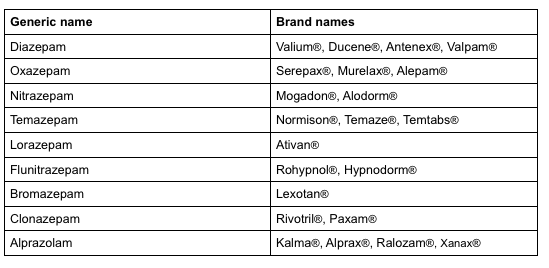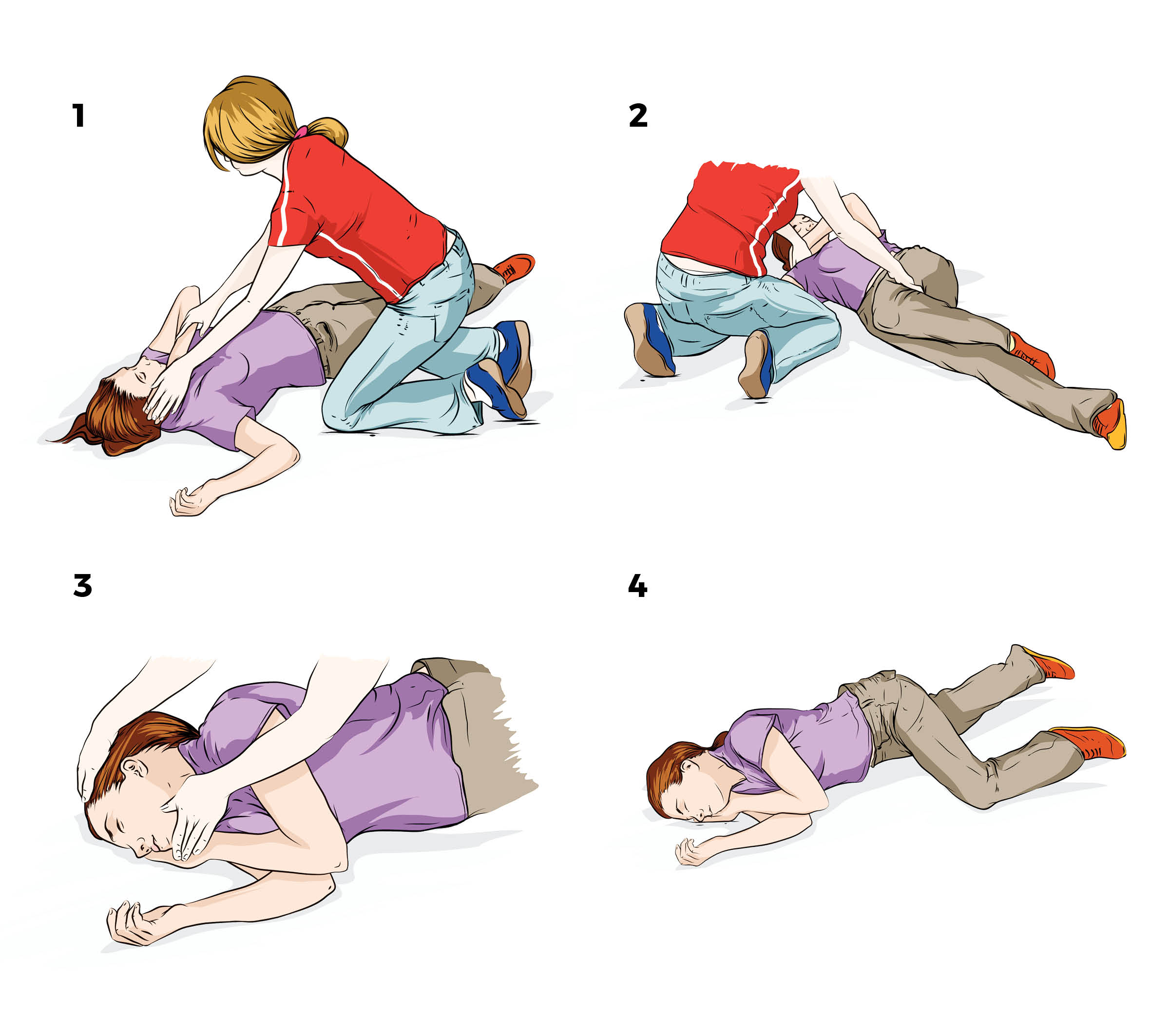Benzodiazepines
Also called benzos, rowies, vals, V, downers, sleepers, mother’s little helpers
Benzodiazepines are depressant drug which means that they slow down the messaging between the brain and the body. Benzodiazepines are prescription medicines known as minor tranquillisers. They may be prescribed to help people with stress, anxiety or sleep problems; they are intended only for short term use, maximum 3-4 weeks. Benzodiazepines may be more widely known by their brand or trade name.

What do they look like?
- Tablets
- Capsules
- Oral liquids
- Usually swallowed
People who inject benzodiazepines, which are intended to be swallowed, are at risk of additional harms including injection related injuries and blood-borne viruses. There is also an increased likelihood of overdose due to more rapid onset of effect.
People commonly use benzodiazepines to relieve stress, anxiety and to help them sleep. Some people take benzodiazepines to induce a feeling of euphoria or to feel relaxed, or to help withdrawal from other substances. Other short-term effects include:
- Tiredness
- Dizziness
- Confusion
- Blackouts
- Short term memory loss
- Temporary inability to form new memories
- Blurred vision
- Mood swings
- Impaired learning
People who inject are at higher risk of additional harms such as:
- Blood-borne viruses
- Bacterial and fungal infections
- Damage to circulatory system
- Increased likelihood of overdose
Benzodiazepines affect people differently, depending on a range of factors including, what dose is taken, whether it is used with other drugs, and the individual characteristics of the person. Benzodiazepines when taken in large doses or when mixed with alcohol or other drugs increase the risk of an overdose.
- Nausea
- Headaches
- Weight gain
- Low energy
- Lack of motivation
- Poor sleep
- Irritability
- Paranoia
- Anxiety
- Depression
- Memory Loss
- Cognitive impairment
- Spending a great deal of time getting, using, or recovering from the effects
- Using in greater amounts, or for longer than originally planned
- Needing to use more to get the same effect
- Having cravings, difficulties stopping/reducing use
- Experiencing withdrawal symptoms
- Social problems including relationship issues, financial problems, impacts on study or work and legal problems
Medical advice is recommended for people who are considering cutting back or stopping their regular or long-term use of benzodiazepines as sudden withdrawal can trigger seizures. Other common withdrawal symptoms include headaches, dizziness, nausea, aching muscles, poor sleep, low mood, irritability, hallucinations, paranoia, anxiety and cravings. These withdrawal symptoms may be unpleasant, but will lessen over time.
Sometimes it can take a few attempts to cut back or stop.
- Focus on reasons for cutting down or stopping
- Avoid ‘triggers’ (i.e. things associated with using such as places, people and stressful situations)
- Ask a friend, family member or health professional for support
Regular benzodiazepine use throughout pregnancy can cause the new born baby to experience withdrawal symptoms such as drowsiness, respiratory difficulties and low muscle tone. People who are concerned about their benzodiazepine use while pregnant or breastfeeding should talk to their doctor or health professional.
If so, questions you may wish to ask are:
- What are the benefits of using them?
- What are the risks associated with using them?
- Are there any safer or better alternatives? (including non-medication-based-treatments)
- What would happen if we did nothing? (i.e. did not use this medicine)
If you agree to using this medication, you may wish to ask:
- How long should i take this medication?
- What are my chances of becoming physically or psychologically dependent upon this medicine?
- How difficult is it to stop using this medicine in the future?
Adis 24/7 Alcohol and Drug Support is a 24 hour, 7 day a week confidential support service for people in Queensland with alcohol and other drug concerns, their loved ones and health professionals.
Talk to us. Anytime, anywhere.
1800 177 833
Signs of a benzodiazepine overdose may include:
- Slow and shallow breathing
- Agitation
- Drowsiness
- Loss of consciousness
If a person has collapsed or lost consciousness, call an ambulance on triple zero (000). If they have stopped breathing commence CPR. If they are breathing normally, place them into the recovery position and wait with the person until the ambulance has arrived.

Adis - Understanding Benzodiazepines Fact Sheet
Adis fact sheet about benzodiazepines, also known as benzos, rowies, vals, V, downers, sleeprs, Mother's little helpers.
Take a self assessment quiz, it's free and only takes 5 minutes.
